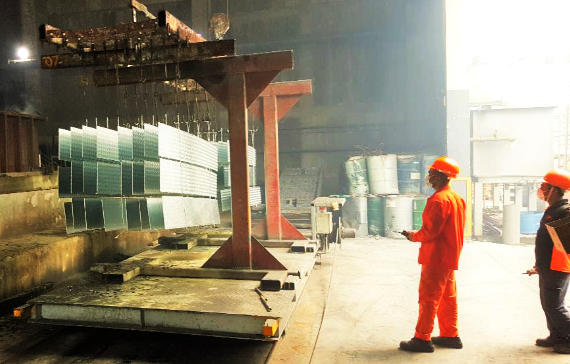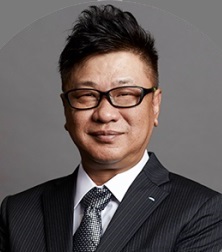 Galvanized steel plates being transferred to a station for final inspection and touch-up at AGV’s Singapore plant. (Photo: Company) Galvanized steel plates being transferred to a station for final inspection and touch-up at AGV’s Singapore plant. (Photo: Company)
Singapore’s leading hot dip galvanising solutions provider, AGV Group, is entering a joint venture with a Yangon construction company to tap into demand arising from Myanmar’s huge need for infrastructure investment. |
Hot dip galvanizing is a superior method of preventing corrosion of iron and steel. It is extensively used in many industries, especially in utilities, automotive, and transportation. AGV CEO Albert Ang believes that the joint venture will be in a strong position for securing projects arising from Myanmar’s National Transport Master Plan (NTMP).
|
|
NTMP was rolled out in July 2014 and called for US$21.7 billion of new investment in road, rail, ports, and aviation infrastructure projects between 2014 and 2030.
Last month, its government announced that it will provide financing to the construction sector through the Construction and Housing Development Bank.
The Group entered a MOU on January 2018 with Myat Mi Ba Company Limited (MMB) to form a JV that will set up a hot dip galvanizing plant to serve the Myanmar market.
The Group will hold an effective interest of 80% in the JV while MMB will hold 20%. MMB has an option to increase its share stake in the JV to 45% after two years from the date of the JV agreement. The JV parties are targeting to execute the JV agreement by 31 March 2018.
|
Stock price |
12 c |
|
52-week range |
11 – 23 c |
|
PE |
24.9 |
|
Market cap |
S$15.4 m |
|
Average Vol. (30-day) |
3.4m |
|
Dividend |
- |
|
Year-to-date return |
-41.5% |
|
Source: Bloomberg |
|
Tapping into early-stage growth
Given Myanmar’s rapid urban population growth, Asian Development Bank has estimated that some US$320 billion of infrastructure investment is needed to tackle the country’s endemic poverty. Plans for foreign investments range from construction of railways, elevated highways, development of regional airports and seaports, to telecoms infrastructure.
“Myanmar’s transition into a new phase of economic liberalization will open the way for greater foreign direct and private investments into the country. This will spur demand for its construction and infrastructure sectors,” said Mr Ang.
The Group expects to report a loss for FY2017.



 We are in a good position in the hot-dip galvanizing industry to secure new projects and grow our top-line.
We are in a good position in the hot-dip galvanizing industry to secure new projects and grow our top-line.